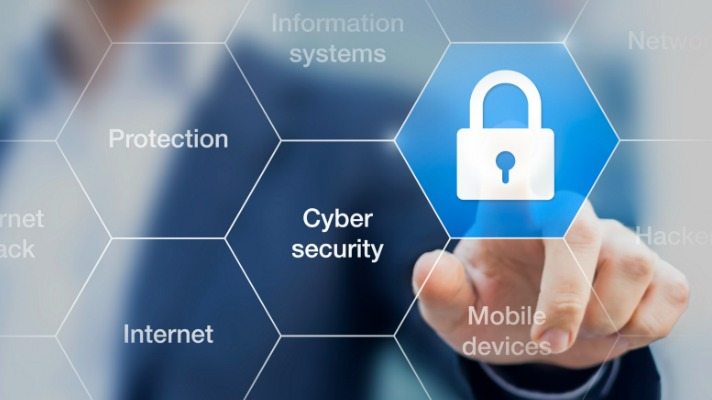
@ShahidNShah


In the rapidly evolving digital age, the healthcare industry has witnessed a profound transformation, with data becoming the lifeblood of medical practice. As hospitals and health tech innovators embrace technological advancements to enhance patient care and streamline operations, they must confront a crucial challenge: safeguarding patient privacy and securing healthcare data against the rising tide of cyber threats. This article delves into the critical importance of cybersecurity in healthcare and unveils unobvious strategies that organizations can adopt to protect sensitive patient information.
Healthcare has emerged as an attractive target for cybercriminals due to the substantial value of medical data on the black market. According to a recent study by IBM Security, the average cost of a data breach in the healthcare sector exceeds $7.13 million, making it the most expensive industry for breaches. Furthermore, the healthcare sector experienced a staggering 55.1% increase in data breaches in the past year alone, underscoring the urgent need for robust cybersecurity measures.
Medical records command a premium on the dark web, fetching up to $250 per record. These records not only contain personally identifiable information (PII) but also valuable health information, making them highly sought after by hackers, who exploit them for fraudulent insurance claims, identity theft, and other malicious activities. This combination of financial gain and anonymity incentivizes cybercriminals to relentlessly target healthcare institutions.
One of the most pervasive threats facing the healthcare industry is ransomware attacks. Cybercriminals use ransomware to encrypt vital medical data, holding it hostage until a ransom is paid. The consequences of these attacks are severe, with hospitals facing critical disruptions in patient care and operational paralysis. Notably, ransomware attacks on healthcare institutions have quadrupled from 34% to 66% between 2020 and 2021, according to a report.

The State of Ransomware in Healthcare 2022
To thwart data breaches and protect patient information, healthcare organizations must adopt end-to-end encryption across their entire IT infrastructure. Advanced cryptographic algorithms render data indecipherable to unauthorized parties, ensuring that even if hackers gain access, the stolen data remains useless. Leveraging quantum-resistant encryption ensures that patient data remains secure against future advancements in hacking techniques.
Moving away from the traditional perimeter-based security model, healthcare institutions should implement Zero Trust Architecture. This approach enforces strict authentication and authorization measures for all users, devices, and applications, regardless of their location within the network. By continuously verifying the identity and security posture of users and devices, organizations can limit lateral movement within their systems and thwart insider threats.
Employees often serve as the weakest link in the cybersecurity chain. Conducting regular, comprehensive training programs to raise awareness of cyber threats and safe online practices can significantly reduce the risk of human errors that lead to breaches. Training sessions should cover phishing awareness, social engineering tactics, and secure handling of sensitive data, empowering staff to become vigilant guardians of patient privacy.
Harnessing the power of artificial intelligence and machine learning can amplify an organization’s ability to detect and respond to cyber threats promptly. AI-driven cybersecurity solutions can analyze vast amounts of data in real-time, identifying suspicious activities and anomalous patterns that human analysts might miss. This proactive approach enables healthcare organizations to stay ahead of emerging threats and mitigate potential breaches.
In the face of sophisticated cyber adversaries, healthcare organizations must unite against the common threat. Establishing collaborative platforms for threat intelligence sharing fosters a collective defense posture. By pooling resources, knowledge, and expertise, healthcare institutions can enhance their ability to identify and combat evolving threats effectively.
As healthcare organizations forge ahead into a digital future, securing patient data becomes an indispensable mission. The dire consequences of data breaches and cyber attacks demand immediate action, compelling hospitals and health tech innovators to adopt unobvious yet powerful cybersecurity strategies. By embracing end-to-end encryption, Zero Trust Architecture, cybersecurity training, AI-driven threat detection, and collaborative threat intelligence sharing, healthcare stakeholders can fortify their defenses and safeguard patient privacy in the digital age. Together, let us rise to the challenge and protect the sanctity of healthcare data for generations to come.
The healthcare landscape is undergoing a profound transformation, marked by the integration of cutting-edge technologies that are reshaping the way hospitals operate and provide care. At the forefront …
Connecting innovation decision makers to authoritative information, institutions, people and insights.
Medigy accurately delivers healthcare and technology information, news and insight from around the world.
Medigy surfaces the world's best crowdsourced health tech offerings with social interactions and peer reviews.
© 2025 Netspective Foundation, Inc. All Rights Reserved.
Built on Dec 12, 2025 at 1:25pm